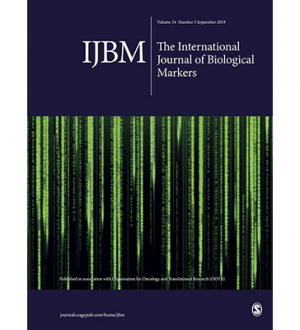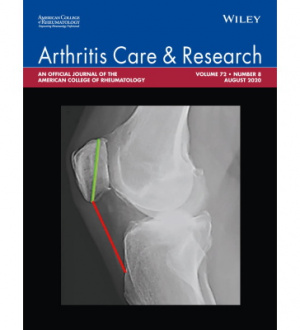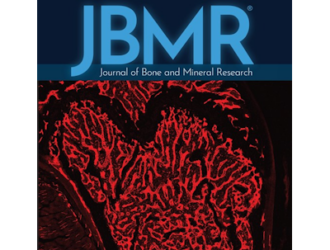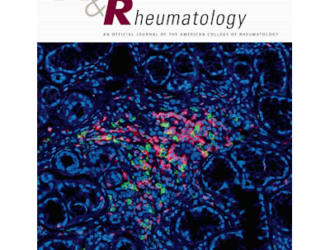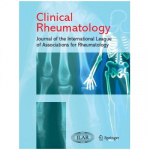 INTRODUCTION/OBJECTIVES:
INTRODUCTION/OBJECTIVES:
Familial Mediterranean Fever is the most common autoinflammatory disease. As chronic inflammation may result in increased arterial stiffness, we aimed to investigate indices of arterial stiffness in patients with Familial Mediterranean Fever and their associations with disease-related factors and colchicine treatment.
METHOD:
The study was conducted with 43 patients with Familial Mediterranean Fever, including 30 children, in attack free period and 42 healthy controls. Arterial stiffness was assessed by carotid-femoral pulse wave velocity and augmentation index.
RESULTS:
Patients with Familial Mediterranean Fever presented similar carotid-femoral pulse wave velocity values to controls, but significantly higher augmentation index values (patients versus controls, 19.76% and 9.96%, P < 0.05).
Augmentation index, adjusted for age and sex, was associated with complete response compared with partial response to treatment (B = - 17.78, 95% CI — 31.17 to — 4.40, P < 0.05) and the presence of M694V. M680I genotype (B = - 16.75, 95% CI — 33.81 to 0.30, P = 0.05). Carotid-femoral pulse wave velocity presented an inverse relationship with colchicine treatment duration (B = - 0.003, 95% CI — 0.006 to — 0.00, P < 0.05).
Pulse wave velocity values adjusted for age and systolic blood pressure were associated with attack frequency (B = 0.48, 95% CI 0.01 to 0.96, P < 0.05). Addition of colchicine treatment duration to the model attenuated the association between carotid-femoral pulse wave velocity and attack frequency supporting the protective role of colchicine.
CONCLUSIONS:
The normal values of carotid-femoral pulse wave velocity in Familial Mediterranean Fever patients may reflect the compliance to colchicine treatment, which seems to have a protective role against arterial stiffness. However, the increased values of augmentation index need further investigation.
KEY POINTS:
FMF patients are prone to present increased cardiovascular risk possibly due to inflammation. • Colchicine treatment may have protective role against arterial stiffness in FMF. • The normal values of cf-PWV in FMF patients may reflect the compliance to colchicine.
ClinRheumatol. 2019 Sep; 38 (9): 2577−2584
Sgouropoulou V, Stabouli S, Trachana M.
PMID: 28 229 824
doi: 10.1007/s10067−019−4 601−6
